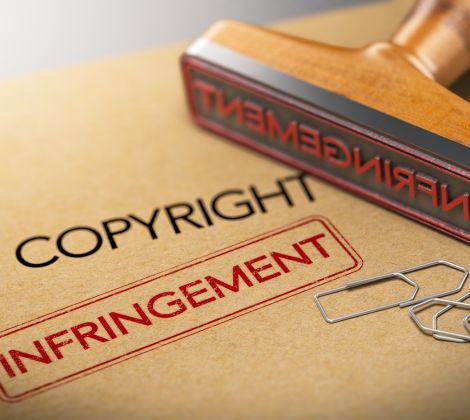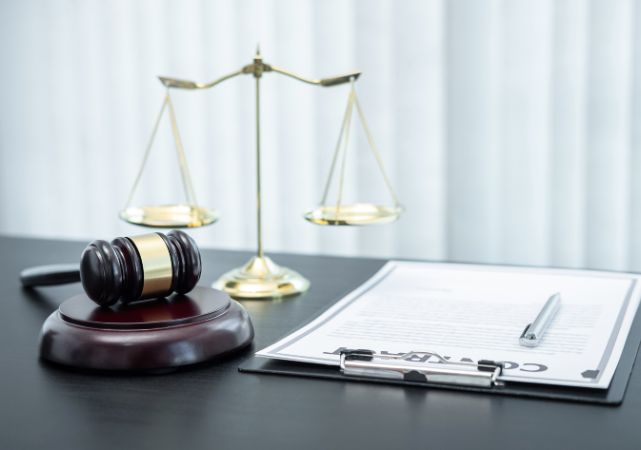


Intellectual Property lawyers help individuals and businesses properly register, protect, and manage their IP assets through various non-contentious (e.g. registering a right) and contentious (e.g. fighting an infringement) work.
This is vital for ensuring owners of Intellectual Property maximize the commercial value of their work.
Commonly, we help clients with:
Copyrights confer the right of the owner to prevent others from copying their work. It does not stifle the independent creation of works.
Copyrights arise automatically upon the creation of particular works and do not need to be registered explicitly in Kenya, however, we would still recommend registration with the Kenya Copyright Board.
Commonly, we help clients with:
Copyright registration
Copyright protection
Copyright assessment
Copyright (haki miliki in Kiswahili) refers to an exclusive bundle of rights granted by law to authors of literary works; producers of audiovisual works and films; architects; performers; broadcasters and other creators of literary, musical, artistic, audio-visual, and sound recordings and broadcasts.
Copyrights protect the expression of an idea from being copied without authority. It does not protect the concept or the idea. It also does not protect logos, symbols, titles, short phrases, or factual information that may be contained in a copyrighted work.
In Kenya, Copyright protection lasts for the life of the author plus 50 years. If the author is unknown, the period of protection is 50 years from the date it is published. In the case of joint authorship, the copyright will last for the lifetime of the authors and 50 years after the death of the last author. Audio-visual works, photographs, sound recordings, and broadcasts are protected for 50 years from the date of first publication.
A trademark gives you the exclusive right to use your brand across every service or product you provide. We can review your potential trademarks before you invest time and money in registering them.
We will help you assess whether it makes sense to do so, looking at all your available options, the cost, and how it works. Commonly, we help clients with:
Trademark registration
Trademark opposition applications
Trademark infringement
Pursuing a passing-off claim
A trademark gives you the exclusive right to use your brand across every service or product you provide. This includes your logo, brand colours, specific identifiers in your products, and tag-lines.
We can review your potential trademark before you invest time and money in registering them.
We will help you assess whether it makes sense to do so, looking at all your available options, the cost, and how it works.
To successfully register a trademark, you’ll first need to check that nobody else is already using it for the same or similar goods and services.
It’s also essential to avoid registering words that have become common/generic language in your particular industry.
Trademark applications in Kenya are registered by the Kenya Industrial Property Institute and can take six months, while African Regional Intellectual Property Organization (ARIPO) applications, which cover the 22 Member States, can take six months.
In countries such as the United States, you are able to search for Trademark IDs, Trademark Status, through the United States Trademark and Patent Office, prior to registration but in Kenya the search is still manual.
Passing-off means a situation when a competitor deliberately seeks to benefit by confusing a buyer into thinking that the goods or services on sale have some connection with your product or service, resulting in your business suffering loss and damage.
Even where your trademark is not registered in Kenya, it may be protected under the passing-off law.
Our Advocates provide legal advice on passing off claims, for those wishing to pursue a claim and those on the receiving end of a claim.
Registered patents are a valuable tool that primarily protects the shape of your product and enables you to monetize your work. We can help register your designs, license your rights under comprehensive contracts, and ultimately aid business growth.
To register a design and fully protect it legally, it must be new. Difficulties can arise where it is similar to an existing design.
Commonly, we help clients with:
Patent registration
Patent opposition applications
Patent infringement
Patents are the legal recognition given to new, innovative, and technical inventions.
The criteria for obtaining a patent in Kenya are that the invention must be new, incorporate an inventive step, be capable of industrial application, and not fall into one of the excluded categories.
The decision to embark on patenting to protect your product needs careful consideration. At Clay & Associates Advocates, we can guide you as to whether patenting is the right decision for your business in the context of all other options available, and we can work with specialist patent attorneys to get your application underway.
In Kenya, patents are registered through the Kenya Industrial Property Institute (KIPI), which is the government agency responsible for intellectual property matters similar to the United States Patent and Trademark Office. The process of registering a patent in Kenya generally involves the following steps:
1. Patent Search: Before proceeding with the registration, it is advisable to conduct a thorough search to ensure that your invention is novel and not already patented or disclosed in Kenya. This step helps assess the patentability of your invention and avoids potential conflicts with existing patents.
2. Preparation of Patent Application: Once you have determined the novelty of your invention, you need to prepare a patent application. The application should include a detailed description of the invention, claims defining the scope of protection sought, any necessary drawings or diagrams, and an abstract summarizing the invention.
3. Filing the Application: Submit the completed patent application to the Kenya Industrial Property Institute. The application should include the necessary forms, payment of the prescribed fees, and all required documents.
4. Formal Examination: Upon receiving the application, KIPI will conduct a formal examination to ensure that all required documents are in order and that the application meets the formal requirements.
5. Substantive Examination: After the formal examination, KIPI will conduct a substantive examination to assess the patentability of the invention. This examination determines if the invention meets the requirements of novelty, inventive step, industrial applicability, and other criteria.
6. Grant of Patent: If the patent application is deemed to meet all the requirements, KIPI will grant the patent and issue a patent certificate. The patent is then published in the Kenya Industrial Property Journal.
It’s worth noting that the registration process may involve additional steps, such as responding to any objections raised during the examination or attending hearings if necessary. The duration of the patent registration process can vary, but it generally takes a few years to complete.
It is advisable to consult with a qualified intellectual property attorney or agent who specializes in Kenyan patent law to guide you through the registration process and ensure compliance with all requirements and procedures.
Registering patents in Kenya can take six months, while African Regional Intellectual Property Organization (ARIPO) applications, which cover the 22 Member States, can take six months.
The requirements for obtaining a patent vary depending on the jurisdiction, but generally, the following five requirements are common:
1. Novelty: An invention must be new and not publicly disclosed before the filing date of the patent application. It should be different from any existing knowledge or prior art.
2. Inventive Step/Non-obviousness: The invention must involve an inventive step or non-obviousness, meaning it should not be an obvious or predictable development from existing knowledge or prior art for a skilled person in the relevant field.
3. Industrial Applicability: The invention must have industrial applicability, meaning it should be capable of being made or used in some kind of industry or business activity.
4. Patentable Subject Matter: The invention should fall into one of the categories of patentable subject matter, which typically include processes, machines, manufactures, compositions of matter, or improvements thereof. Laws regarding patentable subject matter may vary across jurisdictions.
5. Sufficient Disclosure: The patent application must provide a clear and complete disclosure of the invention, enabling a person skilled in the relevant field to reproduce and practice the invention based on the information provided in the application. Sufficient disclosure includes a detailed description of the invention and, in many jurisdictions, claims that define the scope of the protection sought.
It’s important to note that the requirements for obtaining a patent can be complex and vary from country to country. It is advisable to consult with a qualified patent attorney or patent agent who can provide guidance specific to your situation and jurisdiction.
Before any fees, we’ll first schedule a consultation to listen and learn more about your situation.
The session is an hour long, and there are no obligations to engage our services afterward.
As part of the consultation, we’ll lean on our years of experience as Intellectual Property lawyers to suggest the best solution for you or your business.


Intellectual property rights are legal protections for creations of the mind, including artistic, literary, and musical works, designs, inventions, and business assets, like brand names and logos.
In Kenya, they include Trademarks, Patents, and Copyrights among others, and are registered under various government bodies such as the Kenya Industrial Property Institute and the Kenya Copyright Board.
While Kenya is still a developing nation and our laws are constantly evolving, countries such as the United States have a more mature IP market helped by offices such as the United States Patent and Trademark Office. As well as the US Copyright Office.
A trademark gives you the exclusive right to use your brand across every service or product you provide. This includes your logo, brand colours, specifical identifiers in your products, and tag-lines.
We can review your potential trademarks before you invest time and money in registering them.
We will help you assess whether it makes sense to do so, looking at all your available options, the cost, and how it works.
Patents are the legal recognition given to new, innovative, and technical inventions.
The criteria for obtaining a patent in Kenya are that the invention must be new, incorporate an inventive step, be capable of industrial application, and not fall into one of the excluded categories.
The decision to embark on patenting to protect your product needs careful consideration.
At Clay & Associates Advocates, we can guide you as to whether patenting is the right decision for your business in the context of all other options available, and we can work with specialist patent attorneys to get your application underway.
Copyright confers the right of the owner to prevent others from copying their work. It does not stifle the independent creation of works.
Copyright arises automatically upon the creation of particular works and does not need to be registered explicitly in Kenya, however, we would still recommend registration with the Kenya Copyright Board.
As copyright arises automatically upon the creation of a piece of work, i.e. without any formal registration process, a person or organisation infringes copyright if they copy your work wholly or substantially.
In some cases, copying is blatant, but most cases that end up in court are not so clear.
There is no hard and fast rule to proving copyright infringement; that’s why it’s vital to seek experienced legal advice as soon as possible when you suspect that someone is copying your work.
According to the Industrial Property Act 2001, an industrial design is defined as “any composition of lines or colours or any three-dimensional form whether or not associated with lines or colours, provided that such composition or form gives a special appearance to a product of industry or handicraft and can serve as a pattern for a product of industry or handicraft”.
Registering your designs helps safeguard your business interests with more legal protection. It’s quite a tricky process though, so we’re here to help.
To register a design and fully protect it legally, it must be new. Difficulties can arise where it is similar to an existing design.
In legal terms, the test is whether similarities are so strong that the differences are immaterial. As you may imagine, this is not always easy to clearly determine, and many legal disputes over designs arise where businesses seek to protect previously unregistered designs.
In a competitive marketplace, disputes can arise for tactical and commercial reasons, so it’s worth ensuring you have specialist legal advice from the outset.
Whilst we always recommend registering your designs where possible, in certain circumstances you can still take action to protect your work in the event of an infringement even if you only have unregistered rights.
This is because unregistered rights are similar to copyright (but expire far more quickly), in that a level of legal protection against copying automatically arises on the creation of novel designs.


Years of Experience

Our friendly Intellectual Property advocates and practitioners are on hand to carry out a complimentary legal assessment of your business and advise how best to protect your valuable intellectual property, so get in touch today to discover how we can help you.